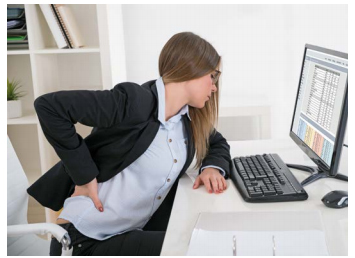Hampstead Garden Suburb News – Spring 2016
Whether it’s texting, tweeting, checking emails and missed calls, or immersing ourselves in the latest round of Candy Crush, it’s all too easy to get sucked into the screen in front of us.
Being permanently contactable and having the whole world at our fingertips has a downside.
Unaware that we are hunching our shoulders, oblivious to our surroundings, we tune out our bodies ignoring any warning signs of discomfort until something starts to hurt. We are so focussed on what we’re doing that we end up holding our neck and upper back in awkward positions, putting tremendous strain on our spine. The resulting injuries can be chronic and debilitating. We can no longer blame our sedentary lifestyle.
We can do as much damage to ourselves on the move as we can sitting at a desk devoted as we are to our smart phones, tablets and laptops. A stiff neck, headaches, tendonitis, a slipped disc, persistent shoulder pain and a sore back can be among the unwelcome consequences. Often we get to the end of the day feeling uncomfortable and tense, drained of energy.

The Alexander Technique can help us do things differently, by learning how to reduce the daily stress and strain on our back and joints. By becoming much more conscious of how we’re doing things, we learn to use no more than the necessary amount of effort and muscular tension.
This can also help us become more resilient to pressure. The results of a new study published in The Annals of Internal Medicine in November show that following a series of Alexander Technique lessons patients with chronic neck pain experienced a significant longterm decrease in pain.
So when your computer is slow to load, there’s no point glaring at it. Just take the opportunity to enjoy a pause, allow your shoulders to drop and stop craning your neck as you peer at the screen.
Notice how you hold your phone. Lift it up closer to eye level so you don’t have to stoop down when the temptation to check if you’ve got any new texts proves irresistible.
Alexander, who was born in 1869, developed his technique long before the proliferation of electronic devices. But understanding how to alleviate a tired, achy back and reduce the risk of injury is invaluable. Often it’s the things we don’t realise we are doing which are at the root of the problem.
Nor is technology necessarily to blame. It may well have been possible to suffer from a repetitive strain injury in the days of sitting in a shadowy candle-lit monastery, quill in hand, squinting at a sheet of parchment.
ELIZABETH ABRAHAMS

Recent Comments